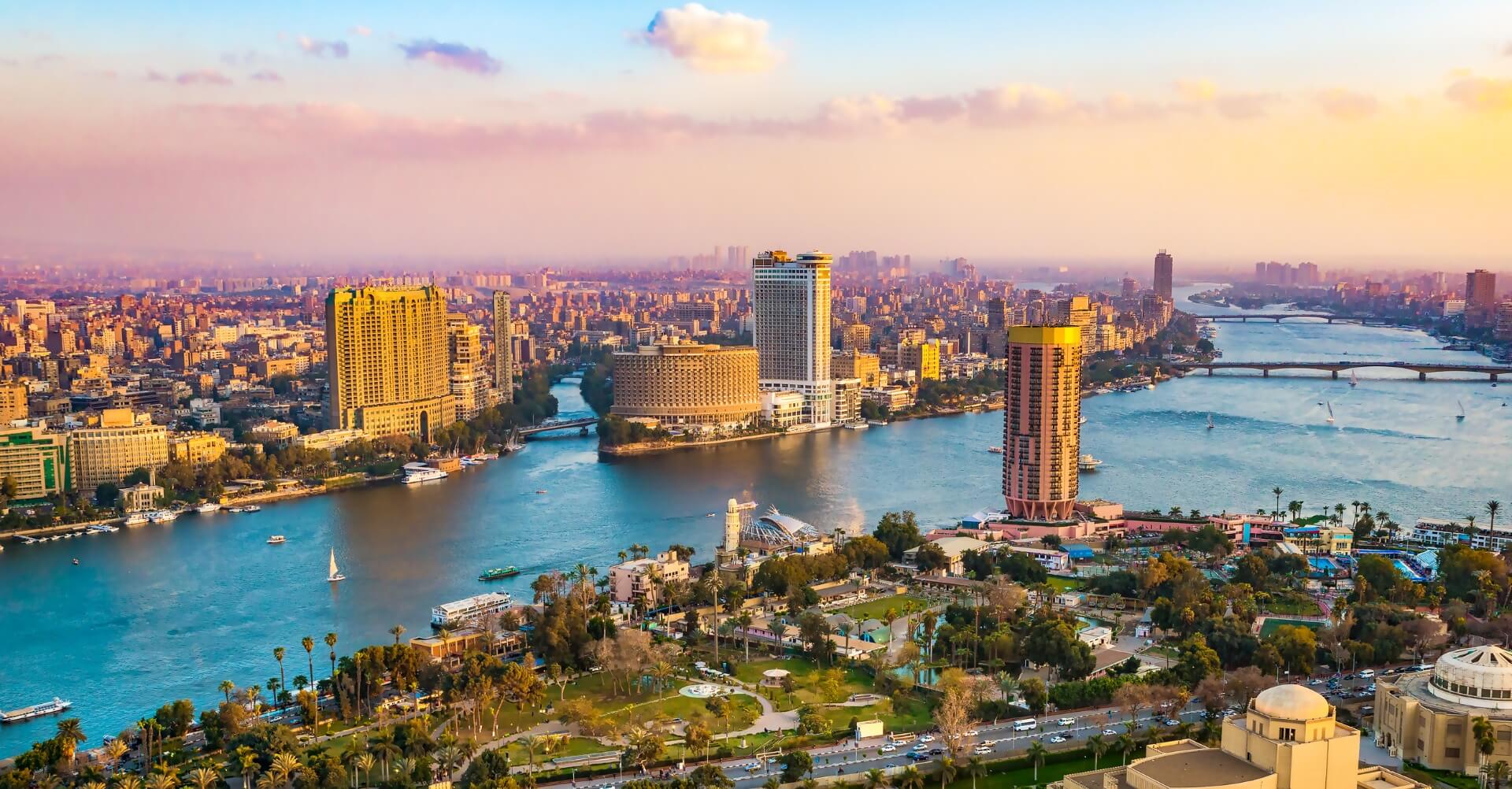Egypt’s PPI rating is not particularly high, which makes it a less than ideal location for a VPN server. The country has a long and storied history, with the Great Pyramids and ancient temples standing as testaments to its past. However, in the digital realm, Egypt’s privacy landscape is less impressive. The government maintains tight control over the internet and has a history of blocking websites and online services. Moreover, the legal framework for digital privacy, data retention, copyright, and P2P file-sharing is unclear, which raises concerns for VPN users seeking a secure and private connection.
Our rating: ![]()
Pros:
- Bypass government censorship and access restricted websites.
For ultimate privacy, we recommend using Switzerland if speed and latency are not a primary concern.
Cons:
- Egyptian government actively tries to block VPNs and regularly disrupts VPN services.
- Using a VPN in Egypt could face legal prosecution under recent cybercrime laws.
- Slower internet speeds due to bandwidth throttling of VPN traffic.
- Less VPN server options to choose from compared to other locations.
VPN Legality
In Egypt, the legality of VPNs is unclear due to the ambiguity of existing cyber laws. There is no explicit legislation prohibiting the use of VPNs, but the Anti-Cyber and Information Technology Crimes Law (Law No. 175 of 2018) vaguely criminalizes the illegitimate bypassing of codes, passwords, or cryptographic or logical protections set up to restrict access to certain programs or websites. This could theoretically extend to the use of VPNs for accessing blocked content. The government has also shown a propensity to interfere with internet services for political purposes. Reports suggest that during periods of political unrest, the government has targeted VPNs and the Tor network, among other tools, to stifle dissent and control information flow. The Tor Metrics also indicate periods of significant drops in directly connecting Tor users, which suggests possible interference. However, the scope and extent of such interferences are variable, and VPN services continue to be an important tool for users seeking to bypass censorship and protect their online privacy.
Freedom of Expression and Censorship
Freedom of expression remains a contentious issue in Egypt, as legal restrictions and practices have historically limited this fundamental right. As per Egypt’s Constitution of 2014, Article 65 guarantees the right to freedom of thought and opinion, and every individual has the right to express these opinions verbally, in writing, or through other means of expression. However, the interpretation and execution of this law often conflict with this provision. Notably, cases such as the high-profile imprisonment of blogger Alaa Abd El Fattah and photojournalist Mahmoud Abu Zeid (“Shawkan”) have highlighted the state’s crackdown on free expression, especially those criticizing the government. A study from the International Center for Not-for-Profit Law (ICNL) suggests that vaguely defined cybercrime laws and anti-terrorism regulations have been used to suppress online discourse and digital journalism. These elements, along with frequent blocking of independent news websites reported by organizations like Freedom House, indicate a persistent struggle between freedom of expression and censorship in Egypt.
P2P, Torrenting and Streaming Policies
The state of peer-to-peer (P2P) file sharing and torrenting in Egypt is ambiguous and to some degree controversial, as copyright law enforcement remains inconsistent. Egypt’s Law No. 82 of 2002 on the Protection of Intellectual Property Rights does cover copyright protection and would theoretically prohibit unauthorized torrenting. However, the enforcement of this law, particularly as it pertains to digital content shared through P2P networks, is not robust. It’s important to note that Egypt is not bound to enforce US copyright law per se, but it does observe international treaties like the Berne Convention, which mandates protection of copyrights among signatory countries. Regarding streaming services, international platforms like Netflix, Amazon Prime, and Disney+ are accessible and have a growing user base, but their usage remains limited due to factors such as language barriers, pricing, and internet accessibility issues. The emergence of local streaming services like WatchiT and Shahid are signs of a developing market and the increasing digitization of entertainment in the country.
Government Surveillance and Data Retention Laws
Government surveillance and data retention in Egypt have raised significant privacy concerns over the years. Law No. 175 of 2018, known as the Anti-Cyber and Information Technology Crimes law, allows authorities to order the censorship of websites and to monitor and collect data on individuals without requiring a court order. The law also requires Internet Service Providers (ISPs) to store user data for 180 days, which authorities can access, potentially leading to abuses in power and breaches in privacy. Furthermore, the increasing use of surveillance technology, as reported by human rights organizations such as Privacy International, has facilitated the government’s ability to monitor activists, journalists, and political opponents. Recent acquisitions of advanced surveillance technologies, including those capable of deep packet inspection (DPI), indicate an escalation of this issue. This evolving landscape points to a need for greater scrutiny and regulation to uphold individual privacy rights and to counterbalance the state’s surveillance powers.
Privacy Protections
Egypt’s government has not made substantial efforts to enact comprehensive legislation or regulations that prioritize and protect digital privacy. Although Egypt’s Constitution of 2014, in its Article 57, states that “private life is inviolable, safeguarded and may not be infringed upon,” there is a clear lack of specific laws to protect digital privacy. Moreover, the Anti-Cyber and Information Technology Crimes law (Law No. 175 of 2018), which could have been a step towards digital privacy, instead expanded the government’s surveillance powers. Observers, including international bodies like Amnesty International and Human Rights Watch, have raised concerns about the government using these laws to infringe upon citizens’ digital privacy rights. As such, the sincerity and effectiveness of these efforts are heavily questioned. Concerning the presence of government or intelligence backdoors, while there is no public, concrete evidence of this, the increased surveillance capabilities, combined with the lack of robust privacy protections, suggest that there is a high likelihood that such mechanisms could exist.
VPN servers in Egypt:







Leave a Reply